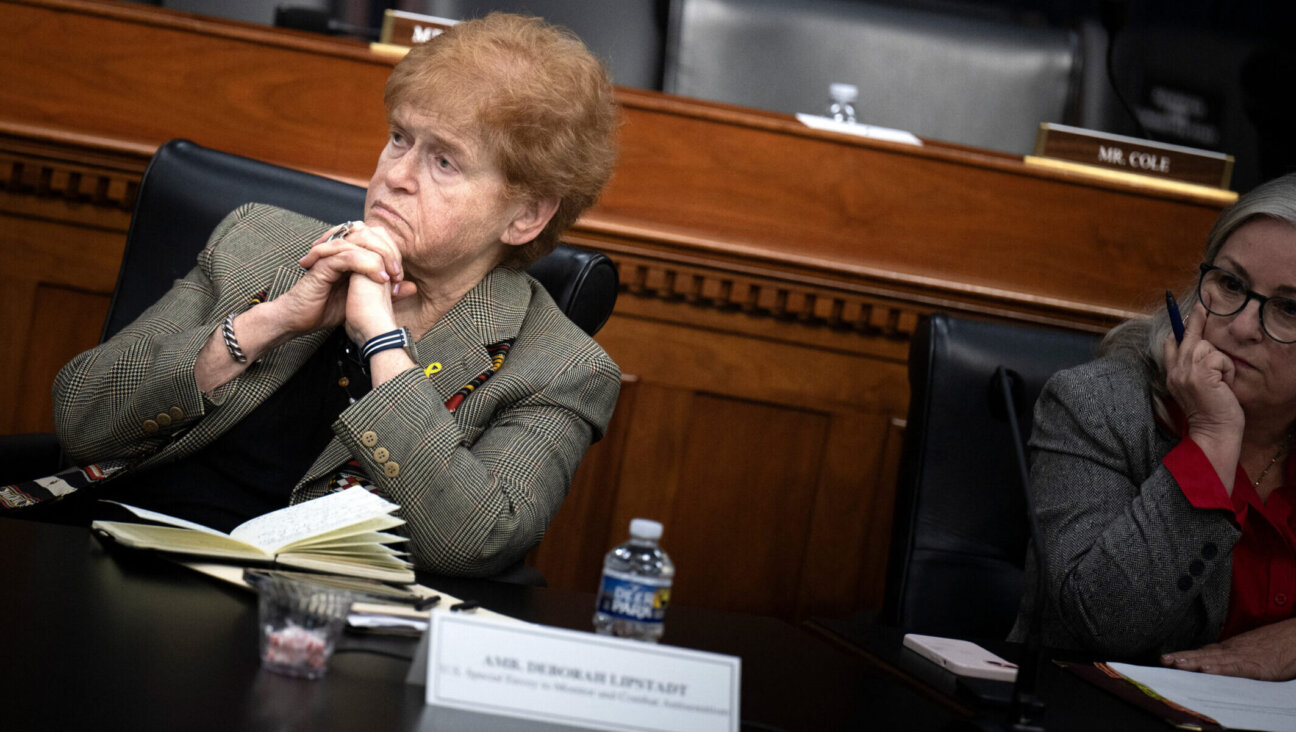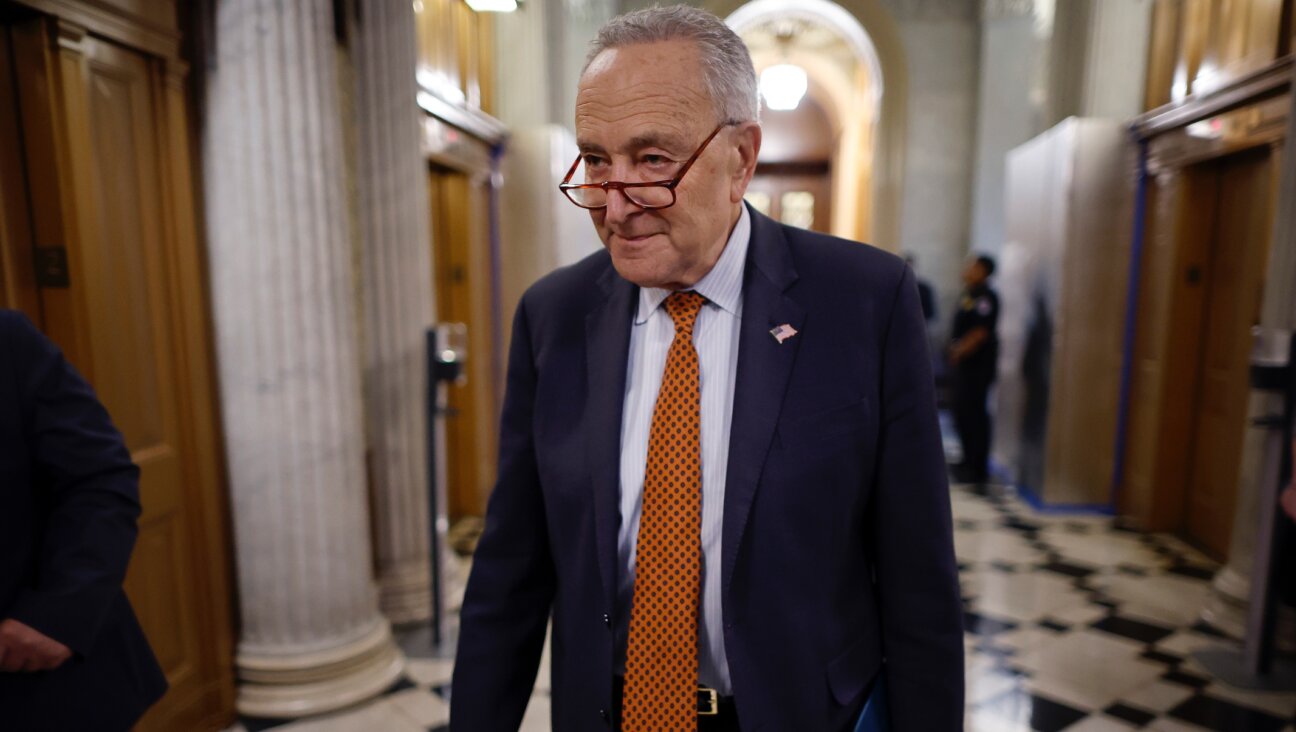Jared Kushner Is Trump’s Main Man On Mideast Peace — But What’s His Plan?

If Jared Kushner has a plan to solve the Arab-Israeli conflict, so far he’s giving little away.
In the four months since President Donald Trump took office and gave his 36-year-old son-in-law the job of forging peace between Israel and the Palestinians, Kushner has kept his plans under wraps for a conflict that is nearly twice as old as he is.
The assignment would pose daunting challenges for the most seasoned diplomat, much less a novice. Peace talks have been stalled for years, most recently breaking down in 2014 following disagreements over Israeli settlement-building and a Palestinian move to reconcile with the Islamist group Hamas.
By making the Arab-Israeli conflict the centerpiece of his first trip abroad, and putting such a high-profile figure in charge of it, Trump has jumped headlong in without the usual caution and discretion shown by his predecessors.
Dating back decades, presidents have typically waited until later in their administrations to engage publicly on one of the world’s most intractable diplomatic issues. The initiatives that won Nobel Peace Prizes, the Camp David accords in 1978 and the Oslo agreement in 1993, arose from talks begun in secret.
But although Kushner has been given the task with a higher profile and at an earlier stage in his father-in-law’s presidency than usual, he has so far brought an understated style to the role, which veterans of Middle East diplomacy say could work in his favor.
“At this stage of an administration, keeping your cards close to your vest is probably not a bad thing,” said Dennis Ross, who served as a Middle East peace envoy under President George H.W. Bush and President Bill Clinton.
“To be revealing too much before you know what you can achieve and when you can achieve it … is probably the best way to undermine your ability to get anything done soon,” he said.
TREMENDOUS CLOUT
Kushner, who wields tremendous clout within the White House on a broad range of issues, is not a full-time envoy in the traditional model that previous U.S. administrations have employed when peace negotiations were under way.
In addition to his foreign policy portfolio which also includes China, Mexico and Canada, he has responsibility for trade and domestic topics in his father-in-law’s administration.
Rather than broadcasting his plans and dashing among the parties in a high-profile display of shuttle diplomacy, as more traditional envoys such as Ross were known to do, his approach has been decidedly low-key, delegating much of the work.
The shoe-leather tasks of day-to-day discussions with leaders in Jerusalem, Ramallah, Amman and the Gulf to gather input and regional perspective has been handled by Jason Greenblatt, a real-estate lawyer and long-term Trump loyalist.
While Kushner has visited Iraq and now Saudi Arabia, and has long had business ties to Israel, including supporting a settlement in the West Bank, Greenblatt has taken the day-to-day lead and reported back to Kushner on progress.
A handful of senior officials on the Israeli and Palestinian sides confirmed they had met with Kushner, but just as quickly underlined that they had nothing to say about what was discussed. It is as if a veil of secrecy is drawn over anything to do with the real-estate developer husband of Ivanka Trump.
One senior administration official said Kushner was treadling carefully to avoid stepping into “the same traps” that have tripped up previous efforts. “He’s a good listener and he’s trying to learn as much as he can,” the official said.
But another former official said a more high-profile and hands-on approach may eventually be needed to achieve progress.
“If this thing is to get traction and to have real credibility, somebody is going to have to be the public and private face of this negotiation,” said Aaron David Miller, who has advised Republican and Democratic U.S. secretaries of state on Arab-Israeli talks.
EVEN-HANDED?
His first task with the Palestinians will be persuading them that he can act as a neutral intermediary. Kushner, a practicing Orthodox Jew, has known Israeli Prime Minister Benjamin Netanyahu for about 20 years, dating to his childhood, when Netanyahu knew Kushner’s father.
He also has personal ties to Ron Dermer, the Israeli ambassador to the United States. Nevertheless, Israeli officials say they do not think Kushner takes their side uncritically.
“In the beginning it looked like Kushner really admired Dermer, really hung on his every word. That created the sense that it was all going to be good: Jared’s young, he’s Jewish, he likes us, he understands us, it’s going to be easy,” said one person close to the prime minister’s office.
“But as time has gone by, that impression has changed somewhat. Now people are not so convinced they were right. Jared is his own man.”
To demonstrate its fairness, the Trump administration invited Palestinian President Mahmoud Abbas to the White House weeks before Trump’s trip to Israel. Kushner and Greenblatt had a two-hour breakfast in Washington with Abbas before Abbas met with Trump, according to a source familiar with the meeting.
Yet many Palestinians say they are skeptical that someone with such close ties to Israel can ever be even-handed. The Palestinians believe that Israel is deliberately stalling any peace process while it builds settlements on Palestinian land, and Israel will negotiate only if Washington applies pressure.
“Kushner is good for Israel because of his … fanatic positions,” said Hani al-Masri, a Palestinian political analyst based in the West Bank city of Ramallah. It was probably better that Kushner was slow to unveil any peace plan, because “if he acted it would be for the sake of Israel,” he said.
But Masri also said he suspected the Americans would take their time in laying out any concrete proposals to restart the peace process, because Israel did not want to make concessions.
“Both of them (Kushner and Trump) are not in a hurry because they know that the current Israeli government will not give anything.”
Still, both sides have to be cautious about how they deal with Kushner. Nobody will want to insult someone so close to the president by dismissing a proposal out of hand, said Dan Shapiro, the U.S. ambassador to Israel for six years under President Barack Obama.
“If he gets involved, I think the strongest element that he brings to it is that he’s the president’s son-in-law,” said Shapiro, now a fellow at the Institute for National Security Studies in Tel Aviv.
Kushner’s special status as both a Trump family member and a top adviser was evident during the trip to Saudi Arabia and Israel. In Jerusalem, he and Ivanka Trump joined the dinner between Netanyahu, the president and their wives.
“Netanyahu doesn’t invite his own cabinet to this dinner,” said David Makovsky, an expert on Israeli-Palestinian relations at the Washington Institute in Washington.—Reuters
The Forward is free to read, but it isn’t free to produce

I hope you appreciated this article. Before you go, I’d like to ask you to please support the Forward.
Now more than ever, American Jews need independent news they can trust, with reporting driven by truth, not ideology. We serve you, not any ideological agenda.
At a time when other newsrooms are closing or cutting back, the Forward has removed its paywall and invested additional resources to report on the ground from Israel and around the U.S. on the impact of the war, rising antisemitism and polarized discourse.
This is a great time to support independent Jewish journalism you rely on. Make a gift today!
— Rachel Fishman Feddersen, Publisher and CEO
Support our mission to tell the Jewish story fully and fairly.
Most Popular
- 1

Opinion The dangerous Nazi legend behind Trump’s ruthless grab for power
- 2

Opinion A Holocaust perpetrator was just celebrated on US soil. I think I know why no one objected.
- 3

Culture Did this Jewish literary titan have the right idea about Harry Potter and J.K. Rowling after all?
- 4

Opinion I first met Netanyahu in 1988. Here’s how he became the most destructive leader in Israel’s history.
In Case You Missed It
-

Opinion Gaza and Trump have left the Jewish community at war with itself — and me with a bad case of alienation
-

Fast Forward Trump administration restores student visas, but impact on pro-Palestinian protesters is unclear
-

Fast Forward Deborah Lipstadt says Trump’s campus antisemitism crackdown has ‘gone way too far’
-

Fast Forward 5 Jewish senators accuse Trump of using antisemitism as ‘guise’ to attack universities
-
Shop the Forward Store
100% of profits support our journalism
Republish This Story
Please read before republishing
We’re happy to make this story available to republish for free, unless it originated with JTA, Haaretz or another publication (as indicated on the article) and as long as you follow our guidelines.
You must comply with the following:
- Credit the Forward
- Retain our pixel
- Preserve our canonical link in Google search
- Add a noindex tag in Google search
See our full guidelines for more information, and this guide for detail about canonical URLs.
To republish, copy the HTML by clicking on the yellow button to the right; it includes our tracking pixel, all paragraph styles and hyperlinks, the author byline and credit to the Forward. It does not include images; to avoid copyright violations, you must add them manually, following our guidelines. Please email us at [email protected], subject line “republish,” with any questions or to let us know what stories you’re picking up.












